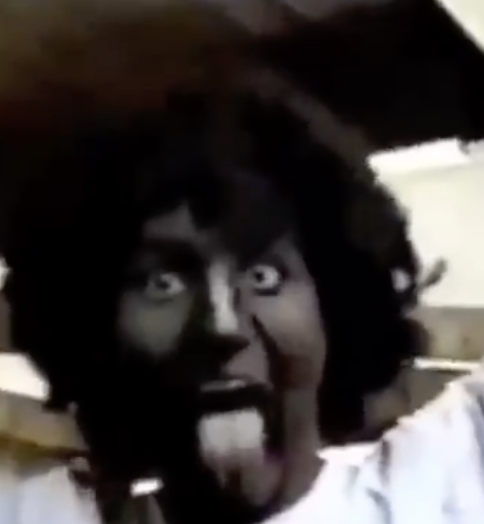“I intend to resign as [Liberal] Party leader, as Prime Minister [of Canada] after the party selects its next leader.” Replacement elections to happen in the near future. “If I’m having to fight internal battles, I cannot be the best option.” – JUSTIN TRUDEAU
A big round of applause goes out to the people of Canada who forced PM Justin Trudeau to resign today… the conservatives are finally making their presence felt. Shout Out to the Canadian Truckers who stood for freedom and pushed back against the vaccine.
CNN contributor on Trudeau's resignation: "God Bless those truckers. There's a direct line between those truckers and what's happening today." pic.twitter.com/hkb12kTMAk
— Stephen Taylor (@stephen_taylor) January 6, 2025
Justin Trudeau, Canada’s Prime Minister from 2015 to 2024, carries a legacy deeply rooted in Canadian political history. His father, Pierre Trudeau, was also Prime Minister, serving from 1968 to 1984, infusing Justin with a sense of political destiny and privilege from birth. Raised in Ottawa’s political circles, Justin’s early life was steeped in the liberal ideologies that would later define his political career. After a brief stint as a schoolteacher, Justin Trudeau entered politics, quickly rising through the ranks of the Liberal Party, capturing national attention with a boxing match against a Conservative Senator in 2012, showcasing his charisma and tenacity.
Trudeau’s political journey saw him elected as an MP in 2008, and he assumed leadership of the Liberal Party in 2013. His tenure as Prime Minister was marked by very progressive policies, including legalization of marijuana, gender-balanced cabinets, and significant commitments to the climate change agenda.
His personal life also garnered considerable attention; he was married to Sophie Grégoire Trudeau, but they announced their separation in August 2023 after 18 years of marriage, marking the end of a high-profile relationship that had been under public scrutiny for years.
The separation came amidst his political career, which was not without controversy. One of the most notable scandals was the SNC-Lavalin affair in 2019, where he faced accusations of improperly influencing his then-Justice Minister, Jody Wilson-Raybould, to offer a deferred prosecution agreement to the Quebec-based company, SNC-Lavalin, facing corruption charges. This led to a public fallout and significant political damage, highlighted by the resignations of Wilson-Raybould and Treasury Board President Jane Philpott.
Video has emerged showing Canadian prime minister Justin Trudeau in black face (and black knees). pic.twitter.com/fX7c7rt3tT
— Andy Ngo 🏳️🌈 (@MrAndyNgo) September 29, 2019
Another shadow on Trudeau’s reputation was the blackface scandal during the 2019 election campaign when images emerged from his past showing him in blackface at various events. This incident sparked widespread criticism, challenging his image as a champion of multiculturalism and social justice. His administration also faced scrutiny over the WE Charity scandal, where it was revealed that family members had been paid for speaking engagements by the charity, which was later awarded a government contract.
🔴LIVE: TRUDEAU ANNOUNCES RESIGNATION? https://t.co/skZIhRxikF
— Mario Nawfal (@MarioNawfal) January 6, 2025
Two Big Reasons Canadians Hate Him Now
Justin Trudeau’s handling of the COVID-19 crisis and the truckers’ protests was a low point in his political career, revealing a pattern of heavy-handed governance and a disconnect from the Canadian public.
Throughout the COVID-19 pandemic, Trudeau’s daily briefings often felt more like political theater than genuine leadership, focusing on his own image rather than addressing the nuanced needs of Canadians. His government’s policies, like the Canada Emergency Response Benefit (CERB), were rife with mismanagement, leading to billions in improper payments. Moreover, his stringent vaccine mandates, particularly targeting cross-border truckers, were seen by many as authoritarian overreach rather than thoughtful public health strategy.
The “Freedom Convoy” protests in 2022 were a direct backlash against what many viewed as Trudeau’s draconian measures. His initial response was dismissive, labeling the protesters as a “fringe minority” with “unacceptable views,” which only served to escalate tensions and widen the division in the country. Trudeau’s decision to invoke the Emergencies Act was particularly egregious, an unprecedented step that allowed for the freezing of protesters’ bank accounts without due process, effectively punishing dissent. This move was not only criticized for its authoritarian implications but also for setting a dangerous precedent for future use of emergency powers in Canada.
These actions painted Trudeau as out of touch, willing to trample on civil liberties for political gain. His handling of the situation was not just about managing a health crisis but also about managing dissent in a way that many found heavy-handed and undemocratic. This period underscored Trudeau’s tendency to prioritize his liberal agenda over the rights and freedoms of Canadians, contributing to a legacy where his leadership is often criticized for its lack of nuance and respect for democratic principles.
Looks like they’ll have an adult in charge
Justin Trudeau just resigned.
— Polymarket (@Polymarket) January 6, 2025
There's a 92% chance Conservative Pierre Poilievre will be the next Prime Minister of Canada. pic.twitter.com/DNinDL8n0h
